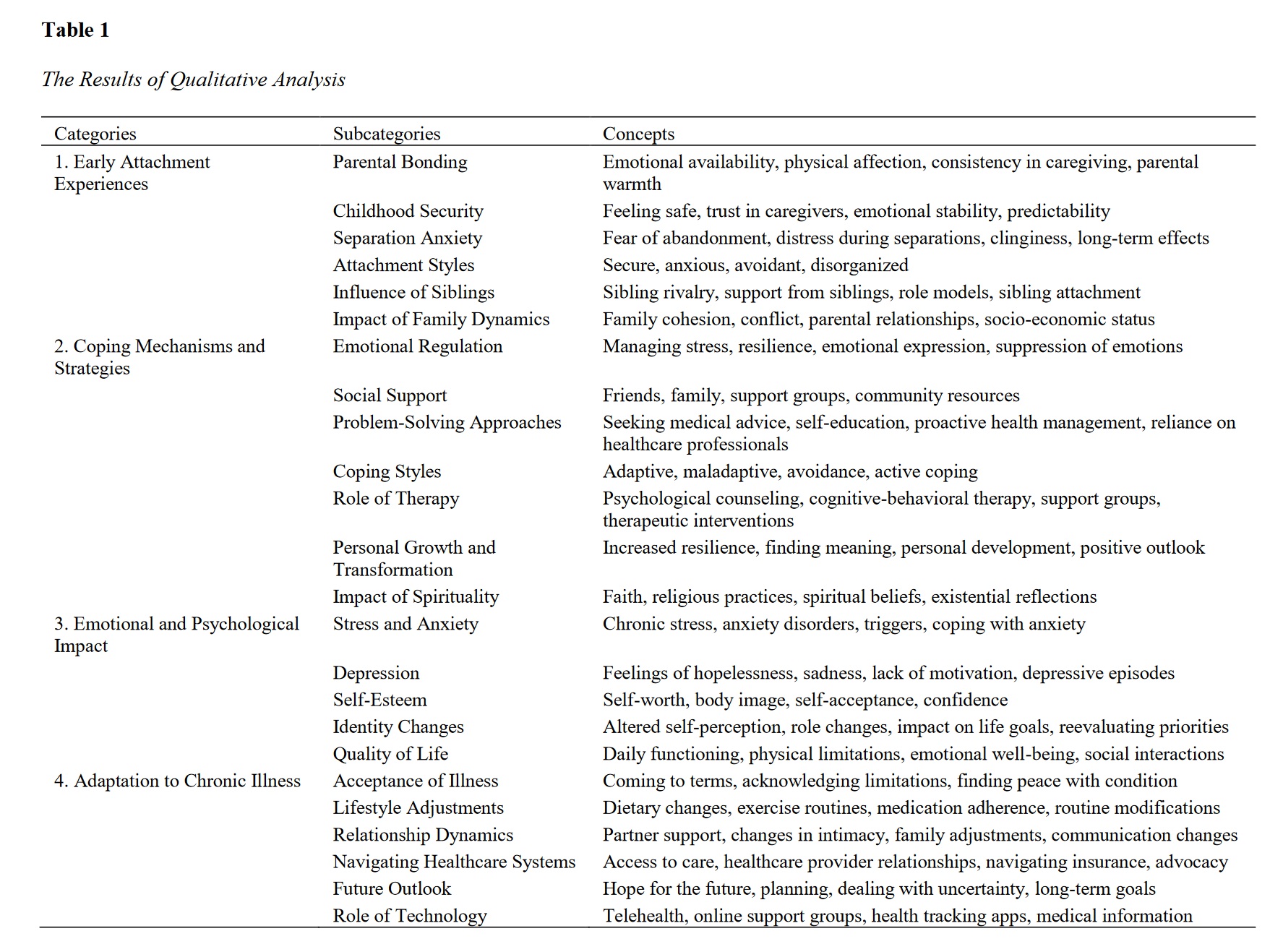The Impact of Early Attachment Styles on Chronic Illness Adjustment: A Qualitative Approach
Keywords:
Early Attachment, Chronic Illness, Psychological Adjustment, Coping Mechanisms, Emotional Regulation, Qualitative Research, Social Support, Attachment StylesAbstract
This study aims to explore the impact of early attachment styles on the adjustment to chronic illness using a qualitative approach. A qualitative research design was employed, involving semi-structured interviews with 27 participants diagnosed with various chronic illnesses. Participants were selected through purposive sampling to ensure a diverse representation. Data collection continued until theoretical saturation was achieved. Interviews were transcribed and analyzed using NVivo software, following thematic analysis to identify key patterns and themes. The study identified four main themes: Early Attachment Experiences, Coping Mechanisms and Strategies, Emotional and Psychological Impact, and Adaptation to Chronic Illness. Participants with secure attachment styles reported better coping mechanisms and emotional regulation. For instance, 70% (19 participants) exhibited adaptive coping strategies and utilized social support networks effectively. In contrast, 30% (8 participants) with insecure attachment styles demonstrated higher levels of stress, anxiety, and maladaptive coping mechanisms. Additionally, 59% (16 participants) highlighted the significant role of social support in their adjustment process. Early attachment experiences significantly influence the adjustment to chronic illness. Secure attachment styles are associated with better psychological adjustment, including effective coping mechanisms and emotional regulation. In contrast, insecure attachment styles correlate with higher psychological distress and maladaptive coping. These findings underscore the importance of considering attachment styles in chronic illness management and suggest that interventions promoting secure attachment could enhance patient outcomes.
Downloads

Downloads
Additional Files
Published
Issue
Section
License
Copyright (c) 2024 seyed ali darbani (Corresponding Author); Neda Atapour (Author)

This work is licensed under a Creative Commons Attribution-NonCommercial 4.0 International License.






